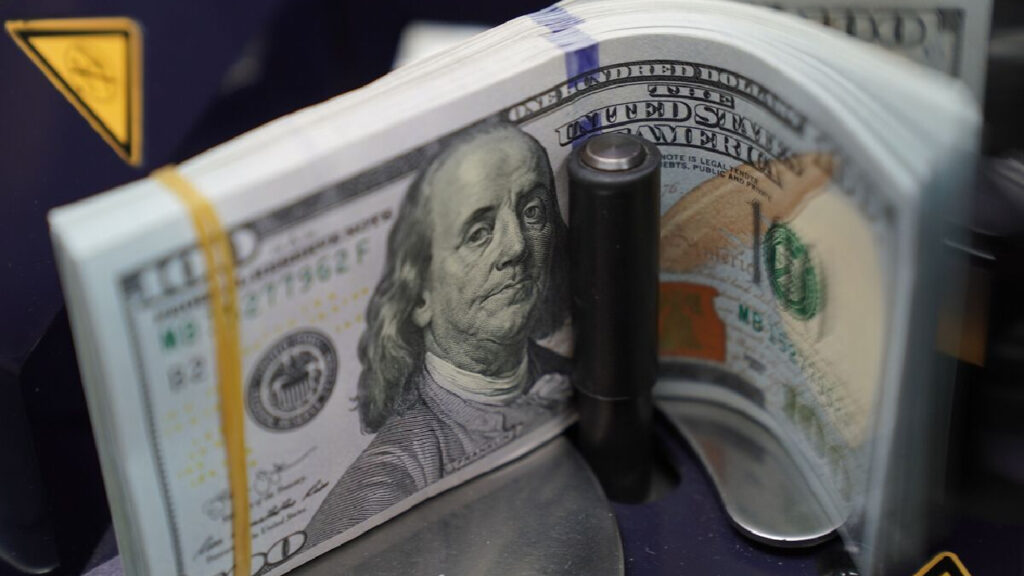Markets
Withdrawal Limits Weigh on Dollar Amid Economic Slowdown
Withdrawal Limits.- The United States’ economic superiority is no longer unparalleled, and the dollar’s value is declining, which is not good news. According to the WSJ Dollar Index, the dollar has fallen by 8.3% from its peak in September and is currently experiencing its worst year beginning since 2018. Investors anticipate that the US currency will continue to fall as the Federal Reserve concludes its most aggressive interest rate hike program since the 1980s. Additionally, concerns over the banking system, a possible US debt default, and the possibility of an imminent recession all weigh on the dollar’s value. Last year, the dollar surged to multidecade highs against currencies such as the euro and the yen as a result of Fed tightening. The dollar’s value began to decline in the fall, but it remained steady in the new year as inflation proved more stubborn than expected before resuming its decline in the last two months.
The Fed is expected to deliver its final quarter-point rate increase before pausing on policy tightening this week. This would put the Fed at odds with other significant central banks, such as those in the eurozone and the United Kingdom, which reopened after pandemic lockdowns later than the United States and are currently experiencing stickier inflation. Nick Wall, head of global foreign-exchange strategy at J.P. Morgan Asset Management, stated that “the US is coming out of a period of extraordinary outperformance. Other countries are starting to catch up.”
Get Wall Street Journal Newspaper for $318
A declining dollar is typically beneficial for the global economy. It reduces the cost of servicing or repaying dollar debt for foreign companies and governments, boosts the value of overseas earnings by U.S. multinationals, and can stimulate global trade because goods priced in dollars become more affordable to international buyers. “It’s a release valve for global growth,” said Mr. Wall. “Sixty percent of global liabilities are denominated in dollars; a lot of those are in emerging markets, and emerging markets are responsible for maybe two-thirds of global growth in the last decade.”
Investors expect the Fed to pivot to lowering borrowing costs by at least a quarter point by year-end, according to CME Group data. Market pricing suggests that investors anticipate the European Central Bank and the Bank of England to raise their key rates by more than half a percentage point by year-end. Analysts believe that this divergence should help currencies such as the euro and the British pound continue to rise against the dollar. Rate differentials are a crucial driver of currency markets because higher rates attract investors in search of yield.
The fact that the dollar remains a preferred asset in times of crisis complicates matters. If there is a real risk of a global recession, such as if global banking strains significantly worsen, the greenback is likely to rally, as it did in early 2020.
Get Wall Street Journal 2-Year Print Subscription Take for $480
Meanwhile, economic momentum is changing. European growth is holding up surprisingly well as the region’s energy crisis eases, while U.S. activity is slowing. China’s economy grew by an unexpectedly high 4.5% in the first quarter compared to the previous year. According to the International Monetary Fund, U.S. gross domestic product expansion is expected to slow to 1.1% next year, while eurozone GDP is expected to rise 1.4%, and Chinese growth is anticipated to be 4.5%.
“The dollar-exceptionalism story is weaker not just from the rates perspective, where rates may have peaked, inflation may have peaked well ahead of the eurozone and the rest of the world, but also from a growth perspective,” said Federico Cesarini, head of developed-market foreign exchange at Amundi Institute. He believes that rising European interest rates are a “regime shift” for the currency market that could lead to a multiyear dollar downturn. Investors have avoided European bonds since

